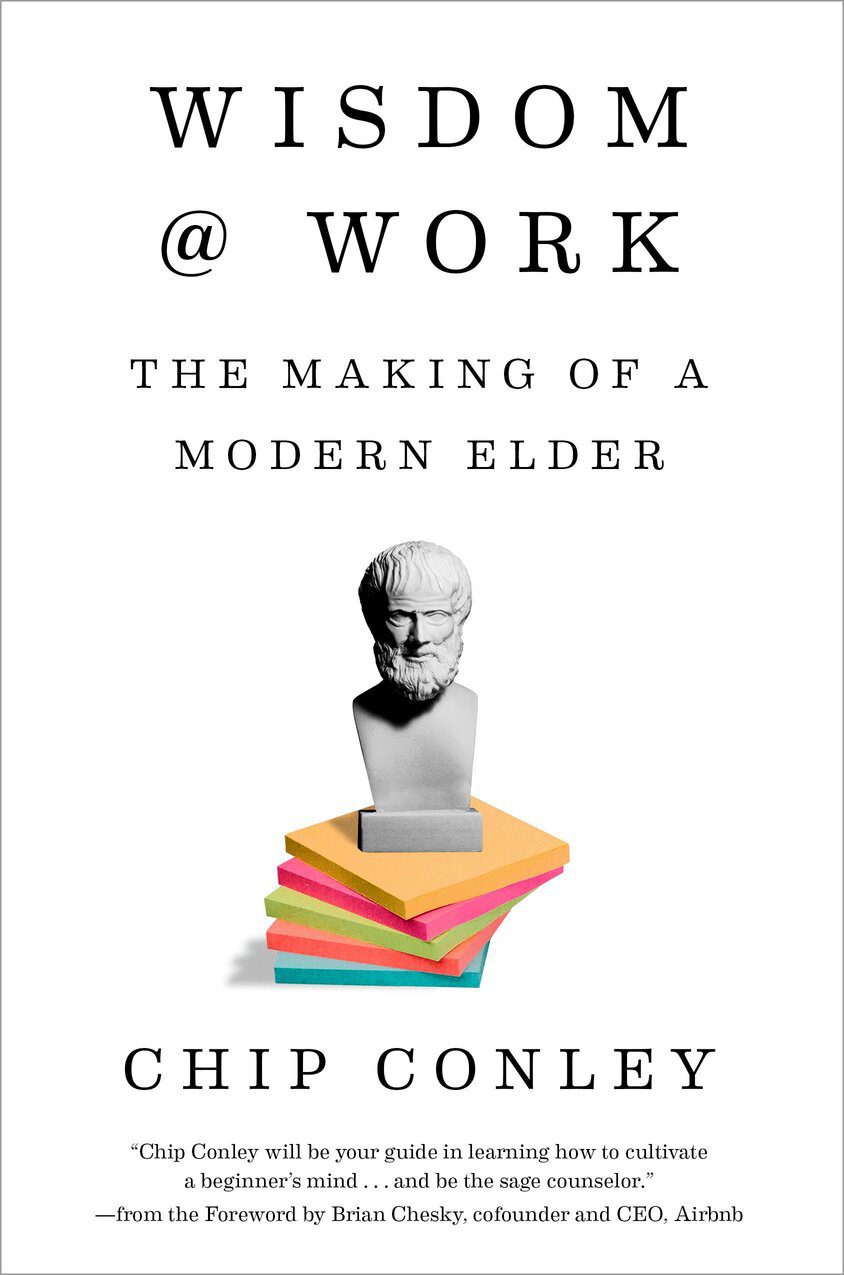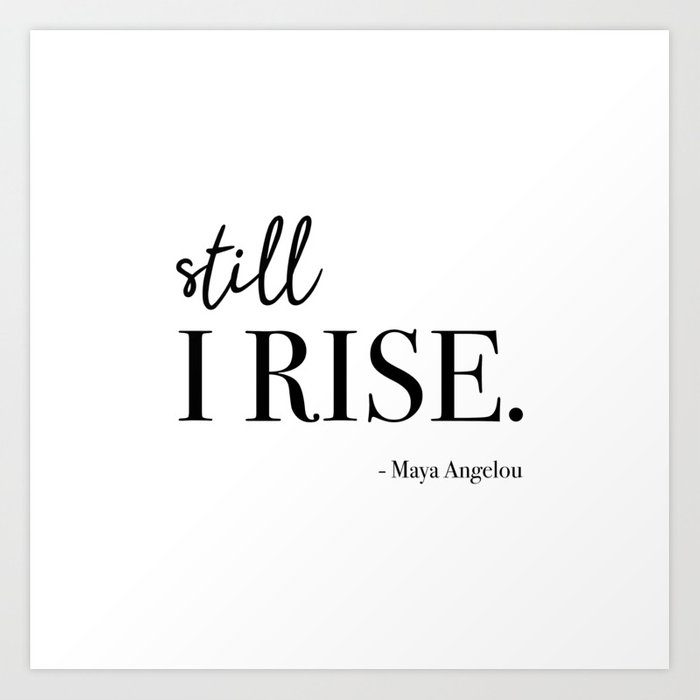“In spite of illness, in spite even of the arch-enemy, sorrow, one can remain alive long past the usual date of disintegration if one is unafraid of change, insatiable in intellectual curiosity, interested in big things, and happy in small ways.” – Edith Wharton
Print | Kindle(eBook) | Audiobook
At age 52, after selling the company he founded and ran as CEO for 24 years, rebel boutique hotelier Chip Conley was looking at an open horizon in midlife. Then he received a call from the young founders of Airbnb, asking him to help grow their disruptive start-up into a global hospitality giant. He had the industry experience, but Conley lacked in the digital fluency of his 20-something colleagues. He didn’t write code, have an Uber or Lyft app on his phone, was twice the average Airbnb employee’s age, and would be reporting to a CEO young enough to be his son.
Conley quickly discovered that while he’d been hired as a teacher and mentor, he was also in many ways a student and intern. What emerged is the secret to thriving as a mid-life worker: learning to marry wisdom and experience with curiosity, a beginner’s mind, and a willingness to evolve, all hallmarks of the “Modern Elder.”
Part manifesto and part playbook, Wisdom@Work ignites an urgent conversation about ageism in the workplace, calling on us to treat age as we would other type of diversity. In the process, Conley liberates the term “elder” from the stigma of “elderly,” and inspires us to embrace wisdom as a path to growing whole, not old. Whether you’ve been forced to make a mid-career change, are choosing to work past retirement age, or are struggling to keep up with the millennials rising up the ranks,
“If wisdom were offered me on the one condition that I should keep it shut away and not divulge it to anyone, I should reject it. There is no enjoying the possession of anything valuable unless one has someone to share it with.” – Seneca
Here are my favourite take ways from reading, Wisdom at Work: The Making of a Modern Elder by Chip Conley;
“A man is not old until regrets take the place of dreams.”—John Barrymore
- By midlife, we may have slayed some of our internal dragons and healed many of our youthful wounds. All kinds of happiness surveys demonstrate a U-curve of adult satisfaction with younger adults starting out pretty excited by life.
- Then happiness starts to dip in one’s late twenties and thirties when the mash-up of responsibilities associated with friends, family, infants, finances, and finding time for oneself takes its toll. It can hit its low point in our forties when midlife disappointment may lead, for some, to new sports cars and wrecked marriages.
Irrelevancy gap: Boomer Angst
- We may live ten years longer than our parents and may even work twenty years longer, yet power is moving to those ten years younger. That can lead to a decades-long “irrelevancy gap”.
“What makes a wine good is not only its age, but also the way you store it, the way you serve it, and the reason for raising a glass.”
Intergenerational Reciprocity
- This concept of intergenerational reciprocity emerges at a perfect moment in our history. For the first time, we have five generations together in the workplace: the silent generation (in their mid to late seventies), baby boomers, Gen X, millennials, and Gen Z. The natural order at work has typically been predicated by a hierarchy, or a food chain, that places older, experienced people above the younger newcomers. But there’s been a gradual shift of power from old to young that didn’t just start with elderly greeters flanking the front doors of your local Walmart while thirty-year-old managers ran the store.
“Wisdom isn’t rare, but it can be hard to access, like diamonds, unless you’ve developed the tools needed to dig for it.”
Generational finger-pointing
- So people are living longer and needing to work longer. Automation is taking more jobs. And there are more generations in the workplace at the same time. Ouch! This sounds like it’s going to get more painful, along with a lot of generational finger-pointing.
“The more high-tech we become, the more high touch we desire.”
The Modern Elder
- A Modern Elder doesn’t have to be older than some specific age or in a senior position in a company, but the person does have to be older and wiser than those around them. That could mean the elder is forty and surrounded by twenty-five-year-olds, or a sixty-year-old surrounded by 40-year-olds, but whatever their biological age, Modern Elders are somehow able to marry an air of gravitas with a spirit of humility.
CHARACTERISTICS OF modern elders
Good Judgment.
The more we have seen and experienced, the better we can handle problems as they come along in stride. The older we are, the more proficient we may be at “environmental mastery,” or the ability to create or choose environments where we thrive
“Good judgment comes from experience and a lot of that comes from bad judgment.” – Will Rogers
Unvarnished Insight.
One of the chief assets gained by experience is a clearness of view, an intuitive insight. A Modern Elder can cut through the clutter quickly to find the core issue that needs attention, whether in a job interview or a strategic discussion.
“Youth is the time for harvesting and accumulating raw ingredients, while elderhood is the process of distilling those ingredients to bring out their best flavors and then blending those flavors together in a perfectly orchestrated meal”
Emotional Intelligence.
- Wisdom isn’t just about what comes out of your mouth, but what you understand based upon listening from your ears and heart.
“Knowledge speaks, but wisdom listens.”
- Modern Elders are self-aware, patient empaths who are good at both understanding and managing their own emotions, and tuning in to the emotions of others.
Holistic Thinking.
- In middle age, the brain has lost a step, so memory and speed decline. But the ability to connect the dots, to synthesize and get the gist of something, grows into late adulthood. Part of this crystallized intelligence is due to the fact that an older brain has the capacity to traverse from one side to the other more adeptly.
Stewardship.
- The older you are, the more you recognize your small place on the planet. But the more you also want to put your lifetime of experience and perspective to work to positively impact future generations.
“Wilderness is to nature as wisdom is to consciousness.” – Joseph Meeker
“Neoteny
- “Neoteny” is a quality of being that allows certain adults to seem childlike and leads people to remark about how these elders seem so young at heart and timeless.
RETHINKING THE THREE-STAGE LIFE
- The age-old, three-stage life cycle—education, work, retirement (raw, cooked, burned)—is deeply ingrained in our institutions and psyches.
- Changing it won’t happen overnight, especially when “employers can smell fifty,” as actor Steve Martin exclaimed in the film Bowfinger. Being too young to retire but too old to find a job is a modern problem that’s ripe for disruption.
- As Laura Carstensen suggests, “The young study, the middle-aged work, the old rest or volunteer. We’re supposed to do things one at a time and in order. There is very little overlap between life stages and, as a result, not only do members of different generations have limited interactions with one another, which fosters misunderstanding and unease, but it’s hard for anyone—of any age—to find a holistic balance between family, work, community, and educational opportunities.
Feeling Too Old to Evolve, Try Becoming an Intern
- If you’re feeling like you’re easing into the winter of your life, but want to remember what it’s like to be in midsummer, you might consider seeking out an internship as a low-risk way to try on a new costume or identity.
- Learn
“To attain knowledge, add things every day. To attain wisdom, remove things every day.” – Lao-Tzu
-To stay relevant, it’s not just about learning something new, it’s also about learning new ways to access the information at our fingertips.
ADOPTING A BEGINNER’S MIND”
- The mind of the beginner is empty, free of the habits of the expert. Such a mind is open to all possibilities and can see things as they are.” So said Shunryū Suzuki, who helped popularize Zen Buddhism in the United States. Part of the practice of Zen Buddhism is creating a safe space for the “don’t know” mind, a place beyond knowing and not knowing. A place where you can contemplate and discern.
“Education is not filling a pail. It’s lighting a fire.” – William Yeats
- Wisdom is whatever is left after you’ve run out of your opinions. Be careful not to use questions as a means of just expressing a strongly held belief.
COLLABORATE
“When your capacity for sharing wisdom is stunted, so will be your fortune in receiving.—CHUNG LING AL HUANG AND JERRY LYNCH
- Elders are as much master conductors as emotional meteorologists, whose deft pattern recognition allows them to see storm clouds surfacing on the horizon long before their cohorts.
EQ (Emotional Intelligence) for Digital Intelligence (DQ)
- Many Modern Elders can read humans like a musician can read sheet music or scales. Many young people, on the other hand, can read the face of their iPhone and understand its inner workings better than they can read the face and emotions of the person sitting next to them.
- Studies show millennials check their smartphone 153 times a day while boomers do so only 30 times. The result is that while millennials might be highly proficient in the use of emojis to express an emotional state, they are missing out on the interpersonal, face-to-face connection that creates true emotional fluency. And beware in your hasty texts on your smartphone; the “?” is just left of the “!,” which can mistakenly turn a question into an angry exclamation in terms of how it’s received. Efficiency can lead to deficiency, right?
COUNSEL
- A MetLife Foundation/Civic Ventures study found that as many as nine million US people between ages forty-four and seventy are already in what has been called an “encore” career that combines purpose, passion, and paycheck. And another thirty-one million say they’d like to do this in the future.
“The values of youth are about possession, consumption, expression and individuality; the values that underpin dignity in age and death are about relationships, connectedness, sharing and participation—far more powerful drivers for social change.”—BRITISH AUTHOR CHARLES LEADBEATER
Notable Mentions
Learning or Leadership Development Programs
- StartingBloc,
- Camp Grounded
- Summit Series
- TEDx
- Hive
- Aspen Ideas Festival
- Renaissance Weekends,
- Road Scholars
- Encore.org “matching socially conscious Modern Elders with nonprofits across the country.”
- AARP’s Experience Corps volunteering in urban public schools
- Stanford’s Distinguished Careers Institute (DCI)
- Harvard’s Advanced Leadership Initiative (ALI)
- AARP The Hatchery
- The Aging2.0 innovation accelerator conference.
- InternationalLiving.com
Movies
- The Intern
- Jiro Dreams of Sushi
- Restless Creature
- Keep On Keepin’ On
- Faces Places”
- Harold and Maude
- The Best Exotic Marigold Hotel
- The Curious Case of Benjamin Button
- About Schmidt
- While We’re Young
PERSONALITY TYPING TOOLS
“Myers-Briggs Type Indicator (MBTI):”
“Strengthfinders: Tom Rath’s popular book,”
Hogan Assessments
DISC
Color Code or True Colors”
Enneagram
“The Enneagram in Business: http://theenneagraminbusiness.com/ and
Integrative 9: https://www.integrative9.com/
All the best in your quest to get better. Don’t Settle: Live with Passion.



1 Comment
Pingback: 100 Books Reading Challenge 2020 – Lanre Dahunsi